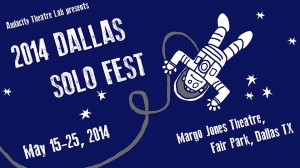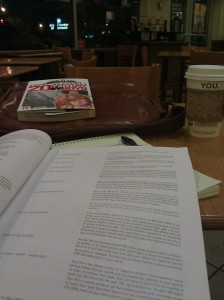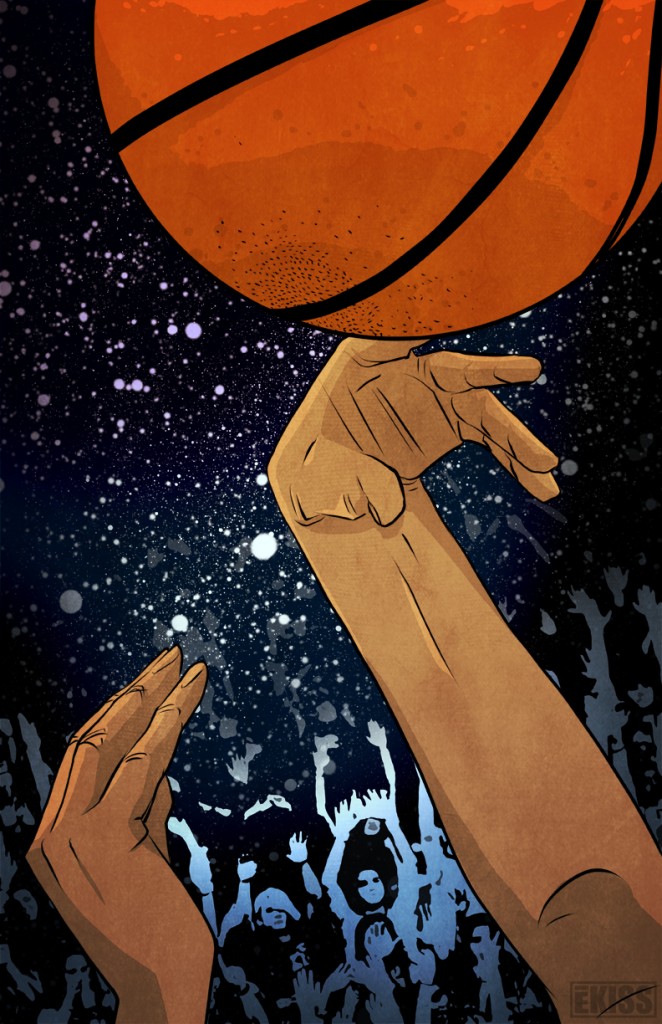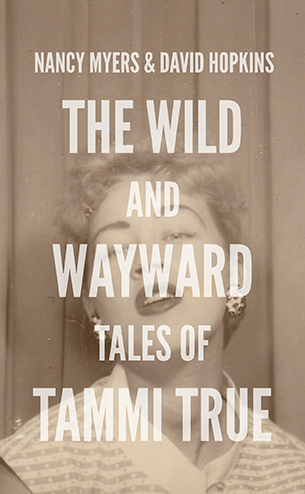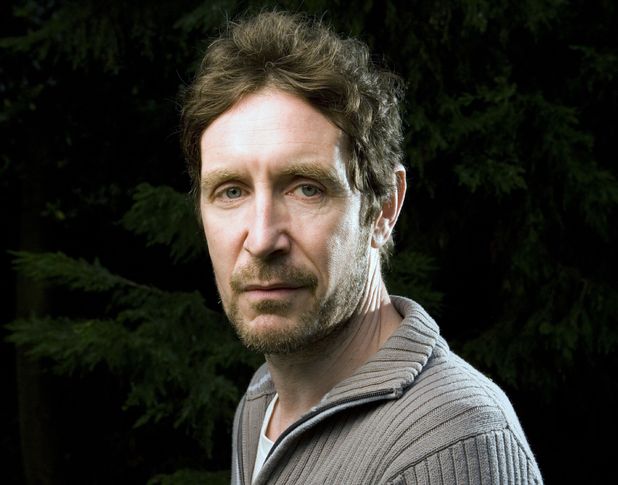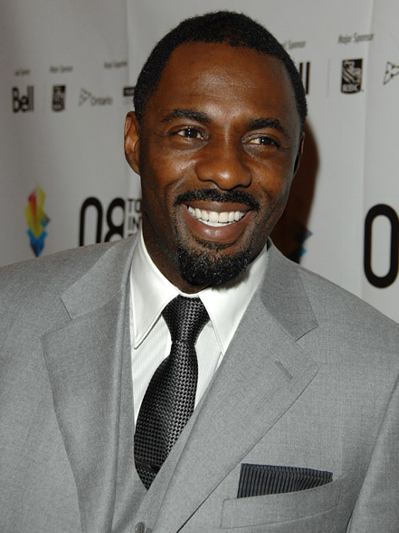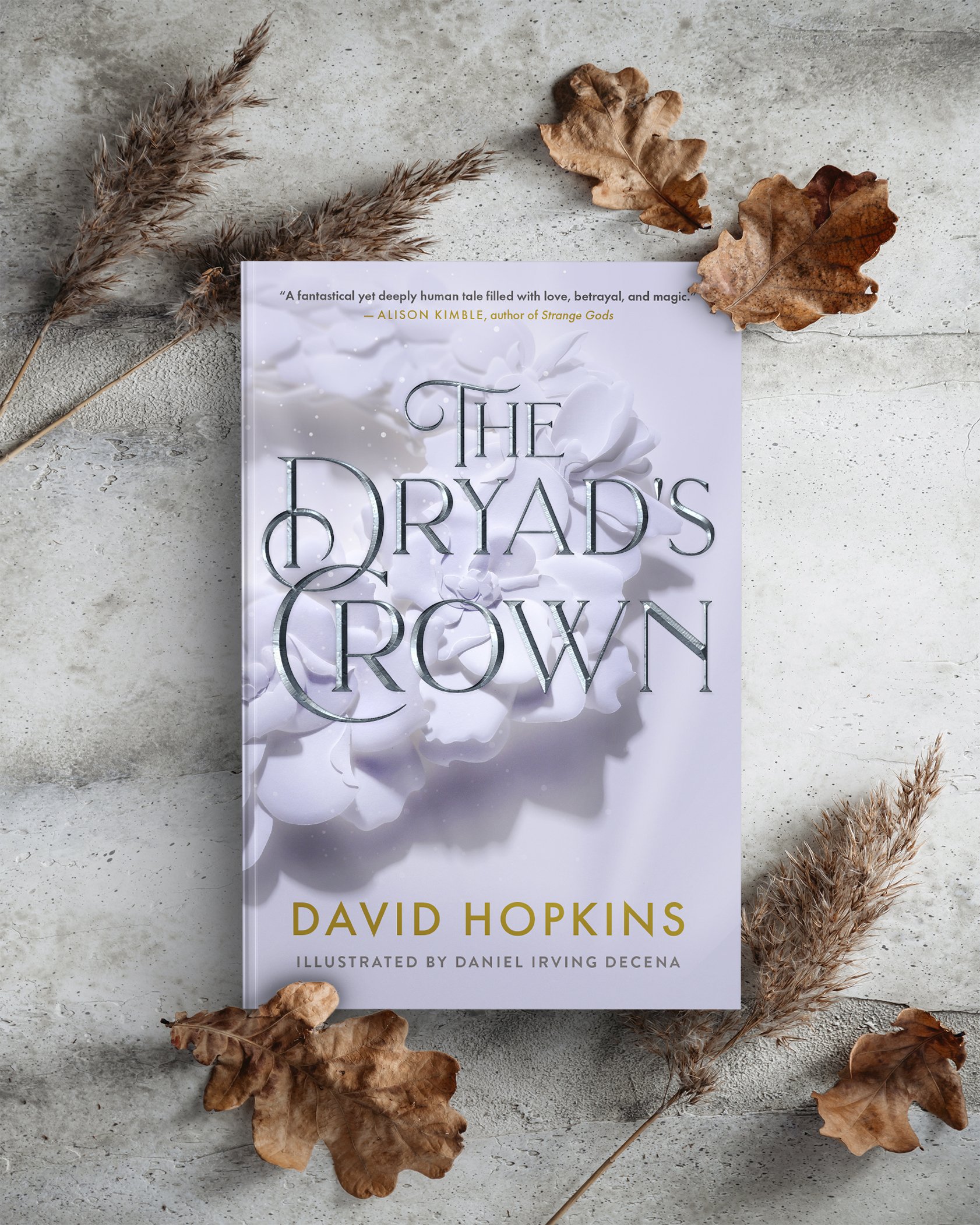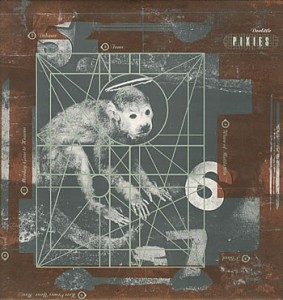 Back in the old days, you'd invite a friend over and they could peruse your CD shelf, quietly nodding to your choices. I guess people still have CD (and record) collections, but almost everything I have is now stored within the near-infinite, intangible bytes of my iPod. If I could pull my favorites and put them on the shelf, here they are.
I made one of these lists for Facebook a few years ago. And I think another such list is hiding in the vast archives of this blog.
Back in the old days, you'd invite a friend over and they could peruse your CD shelf, quietly nodding to your choices. I guess people still have CD (and record) collections, but almost everything I have is now stored within the near-infinite, intangible bytes of my iPod. If I could pull my favorites and put them on the shelf, here they are.
I made one of these lists for Facebook a few years ago. And I think another such list is hiding in the vast archives of this blog.
My mood changes, so do my preferences, but some albums stay at number 1. Hello again, Doolittle, my old friend.
Feel free to post your own list or debate my impeccable musical tastes in the comments section.
All links go to Spotify--unless I couldn't find the album.
20. Fox Confessor Brings the Flood by Neko Case Favorite song: "Fox Confessor Brings the Flood"
For me, this is Neko Case at her best -- wistful, haunting, melodic.
19. From A Basement On The Hill by Elliott Smith Favorite song: "King's Crossing"
This album hit me hard. Like all great works, it holds together by a string, but it still holds.
18. Clap Your Hands Say Yeah by Clap Your Hands Say Yeah Favorite song: "Details of the War"
Some people lament the decline of Clap Your Hands, once heralded with the "most likely to succeed" curse, the new indie darling. Regardless of their future missteps, this album stands on its own merit.
17. Sailing the Seas of Cheese by Primus Favorite song: "Jerry Was A Race Car Driver"
I've come back around to Primus. There's something delightfully immature about this band.
16. Flood by They Might Be Giants Favorite song: "Birdhouse In Your Soul"
This album establishes the TMBG gold standard for fun, silly songs with deceptive depth and melancholy.
15. Firecracker by Lisa Loeb Favorite song: "Wishing Heart"
It's my guilty pleasure on the list. And I will defend its charm and virtue. I know this album by heart.
14. Veckatimest by Grizzly Bear Favorite song: "Two Weeks"
I'm a sucker for eighth notes on a piano. I don't know why. It's a great album for zoning out and losing yourself.
13. Automatic for the People by R.E.M. Favorite song: "Sweetness Follows"
At one time, R.E.M. was my favorite band. I burnt myself out listening to this album. Which I guess is a good thing?
12. Hunky Dory by David Bowie Favorite song: "Life on Mars"
Bowie's best album.
11. Violent Femmes by Violent Femmes Favorite song: "Gone Daddy Gone"
When I first heard this album, I threw away all my thrash and speed metal. Yes, the Violent Femmes ruined Anthrax for me.
10. Siamese Dream by The Smashing Pumpkins Favorite song: "Disarm"
The opening to "Cherub Rock" is one of my favorite album introductions. It says, "This is what you came for." And the album never disappoints.
9. Rubberneck by Toadies Favorite song: "Quitter"
I admit some regional bias.
8. Exile in Guyville by Liz Phair Favorite song: “Divorce Song” or "Fuck and Run"
Most underrated album ever? Not kidding. This album should be required listening for anyone who cares about good music. It's such a raw, vulnerable, powerful, and complete work.
7. Bone Machine by Tom Waits Favorite song: "I Don't Wanna Grow Up"
This album was my gateway into the much wider world of Tom Waits.
6. Apologies to the Queen by Wolf Parade Favorite song: "I'll Believe in Anything"
A powerfully cathartic album, yes, I used the word "cathartic."
5. Magical Mystery Tour by The Beatles Favorite song: "I Am the Walrus"
The Beatles' most solid album from beginning to end? Let the debate begin.
4. Love this Giant by David Byrne and St. Vincent Favorite song: "I Should Watch TV"
A little too new to be this far up on the list? Maybe. But there's something about Byrne that brings out the best in Annie Clark and vice versa.
3. In a Bar, Under the Sea by dEUS Favorite song: "Roses"
The Belgium band dEUS never found its audience in the U.S., except me. So, here I am--basking in the knowledge that everyone else is wrong.
2. The Freewheelin’ Bob Dylan by Bob Dylan Favorite song: "Girl from the North Country"
In the Bob Dylan v. Beatles debate, I'll side with Bob. One could argue without the Freewheelin' Bob Dylan, the Beatles would've never evolved beyond being a teen-bop phenomena. This album challenged them to be something more substantial. And it does that to almost everyone who listens to it.
1. Doolittle by Pixies Favorite song: "Wave of Mutilation"
Nothing is wasted on this concise folky masterpiece of distortion and surf rock. This album is weird and wonderful.
